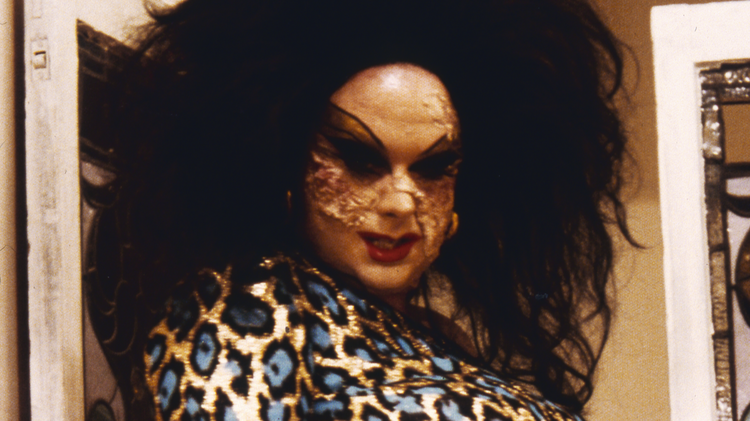
Please note: This was screened in July 2024
Glamour has never been more grotesque than in Female Trouble, which injects the Hollywood melodrama with anarchic decadence.
Before the accidental mainstream successes of 1988’s Hairspray and 1990’s Crybaby, John Waters made a name for himself with a steady slew of crude, low-budget, dark comedy features and independent shorts. With a regular, rotating rogues’ gallery of performers-in-tow – including cult icons Divine and Mink Stole – it didn’t take long for Waters’ subversive cabal to penetrate and offend the general masses. He’d later be anointed “The Pope of Trash” – a title he would wear inside-out with pride over the course of a sixty-year career.
The jewel in the crown of this career is his opus “Trash Trilogy” which includes 1974’s Female Trouble, which celebrates its 50th birthday.
Divine engulfs the screen with charisma as Dawn Davenport, the living embodiment of the film’s lurid mantra “Crime is beauty,”. She progresses from a teenage nightmare hell-bent on getting cha-cha heels for Christmas to a fame-chasing monster whose egomaniacal impulses land her in the electric chair.
Shot in Waters’ native Baltimore on 16mm, with a cast drawn from his beloved troupe of regulars and rabid ferocity, Female Trouble tore hefty chunks from the bodies of celebrity culture, the nuclear family, and the vacuous promises of the mid-Twentieth Century American Dream.
Fifty years later, it has continued to shock and delight audiences across the world; its antithetical nature felt as strongly now as it ever was. Waters’ resilient legacy, not in high art, but is lurking somewhere deep down in the gutter.
This is the final instalment of Trinity of Trash, taking place throughout June at Watershed presented by producer, writer, and community organiser Harriet Taylor (SWITCH) as part of Other Ways of Seeing, supported by BFI awarding funds from National Lottery.

